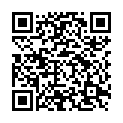|
|
|
| Module code: UI-T-BUV |
|
|
3V+1P (4 hours per week) |
|
5 |
| Semester: 6 |
| Mandatory course: yes |
Language of instruction:
German |
Assessment:
Written exam 180 min., practical training report
[updated 02.12.2025]
|
MAB_19_V_4.08.BUV (P241-0236, P241-0237) Mechanical and Process Engineering, Bachelor, ASPO 01.10.2019
, semester 4, mandatory course, Specialization Process Engineering
UI-T-BUV (P241-0415, P241-0416) Environmental Technologies, Bachelor, ASPO 01.10.2021
, semester 6, mandatory course, technical
UI-T-BUV (P241-0415, P241-0416) Environmental Technologies, Bachelor, ASPO 01.10.2023
, semester 6, mandatory course, technical
UI-T-BUV (P241-0415, P241-0416) Environmental Technologies, Bachelor, SO 01.10.2025
, semester 6, mandatory course, technical
|
60 class hours (= 45 clock hours) over a 15-week period.
The total student study time is 150 hours (equivalent to 5 ECTS credits).
There are therefore 105 hours available for class preparation and follow-up work and exam preparation.
|
Recommended prerequisites (modules):
None.
|
Recommended as prerequisite for:
|
Module coordinator:
Prof. Dr. Timo Gehring |
Lecturer: Prof. Dr. Timo Gehring
[updated 04.08.2023]
|
Learning outcomes:
After successfully completing this course, students will be familiar with and be able to understand and explain the basic principles of genetic engineering and the microbial production of valuable substances.
They will have an overview of the potential of microorganisms and their possible uses and be able to explain them. They will be familiar with and be able to explain methods for handling, preventing and mass producing microorganisms. Students will be familiar with and be able to explain essential methods of up- and downstream processing.
[updated 05.11.2020]
|
Module content:
Upstream processing, bioreactors, ideal and real stirred tank and tube reactors, CSTR, Q/D diagram, continuous reactors, batch reactors, methods of downstream processing; protein as a product
Gene expression, gene regulation, plasmids, vectors, introduction to genetic engineering, genetic fingerprint, PCR, Southern and Northern blot, sequencing according to Sanger, restiction enzymes, expression vectors, expression of eukaryotic genes in prokaryotes, introduction to virology, production of monoclonal antibodies
Lab exercises on selected topics in biotechnology,
Presentations on selected topics from food biotechnology, biotechnology and environmental technology
[updated 05.11.2020]
|
Teaching methods/Media:
Lecture mit blackboard and transparencies; practical lab exercises, class presentations, talks by external guests, study trip
[updated 05.11.2020]
|
Recommended or required reading:
Brock et.al.: Biology of Microorganisms, Prentice Hall
Forst et al.: Chemie für Ingenieure
Löwe: Biochemie, Benke
Thiemann und Palladino: Biotechnologie, Pearson
[updated 05.11.2020]
|

